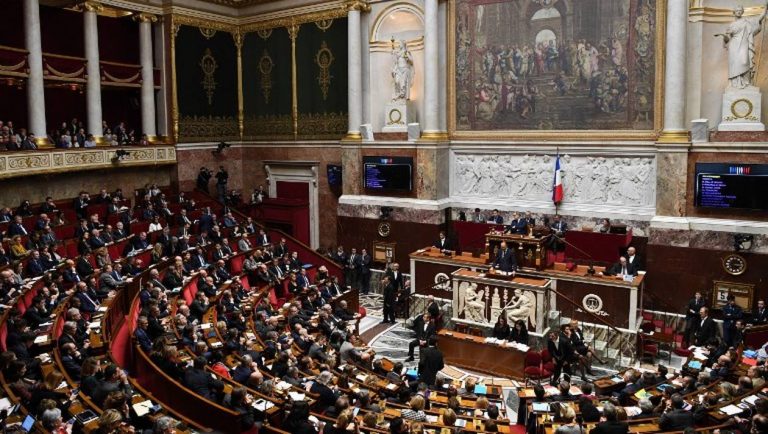National Assembly Prepares for “Uncertainty” of Brexit

France has decided to “prepare” for the consequences of Brexit. The National Assembly supported, in the night to Monday to Tuesday, a bill allowing the French government to protect itself. Explanations.
Brexit “hard” or “soft” ? The National Assembly has approved the bill allowing the government to protect, through future orders, any form that would take the exit of the United Kingdom from the EU, facing the vagueness in London. The text was voted in the night from Monday to Tuesday by 41 votes for, no votes against and 6 abstentions.
All scenarios are still possible on the fate of Theresa May’s draft 17-month divorce agreement with representatives of the European Union, including a “no deal” . May said Monday that the vote on the agreement, originally scheduled for Tuesday, was postponed sine die because of the deep divisions of British parliamentarians who threatened to see it rejected.
The Conservative Prime Minister had previously warned that a rejection would run the risk of leaving the EU on the 29th March without agreement, or even a continuation in the EU in case of a new referendum.
At the Palais Bourbon, European Affairs Minister Nathalie Loiseau stressed “the need to prepare ourselves” for Brexit “in a climate of uncertainty” .
Puzzle and legal loopholes
The text adopted in first reading under an accelerated procedure, after the Senate vote last month, must now be the subject of a joint committee between the two chambers. With this bill, the government wants to deal with any eventuality on the other side of the Channel. It aims to anticipate a series of puzzles, because of the multiple legal voids that would breed a hard Brexit, through a recourse to orders challenged by a party of the opposition.
For Insoumis Eric Coquerel, this text is “giving a blank check” to the government.
“Once again we flout the rights of parliamentarians for the benefit of the executive who will proceed by ordinance,” said Emmanuelle Ménard (RN app, former FN).
“This ocean of uncertainty (in the UK) should bring us some wisdom and take a step back … We are not in the right tempo,” said Constance Le Grip (LR), who asked in vain the referral of the text to committee.
Protect French interests
The rapporteur Alexandre Holroyd (LREM) voted on an amendment so that Parliament could “request any further information” on future measures taken by orders. These must make it possible to adapt to complex situations in the event of a “no deal” .
British and European airlines could lose the right to operate flights, paralyzing air traffic between the EU and the UK. The Eurostar train service could also be difficult because licenses for British rail operators in Europe would no longer be valid.
The question of the French living in the United Kingdom, who would return to live in France, is also a subject. It is necessary to “protect their interests,” said Ms. Loiseau, including ensuring that their professional qualifications and their period of activity across the Channel are recognized.
Exports to the United Kingdom: 3% of French GDP
Among the other measures adopted: the maintenance of the British agents of the French civil service under conditions of status and employment which are theirs, without being able to oppose, overnight, the absence of detention of nationality French. They must not “become the hostages of a Brexit without agreement,” insisted the minister.
At least 150,000 British nationals are living in France, 52% of whom are employed, according to an impact study by the French government. This is to prevent them from finding themselves in an irregular situation.
We must also manage the flow of people and goods, and ensure the continuity of transport through the Channel Tunnel. Exports to the United Kingdom represent 3% of French GDP and about 30,000 French companies export goods or services across the Channel. Conversely, 4 million Britons go to France each year. The Minister of Public Accounts Gérald Darmanin has prepared a reinforcement of the number of customs officers in the ports of Hauts-de-France.
Enjoyed this? Get the week’s top France stories
One email every Sunday. Unsubscribe anytime.


